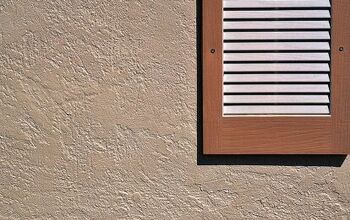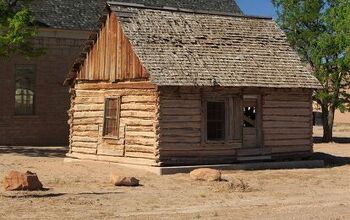13 Things To Know Before Buying Or Renting A Lake House

A lake house can be a fantastic place to spend the summers, and an even better place to invest your money. It’s also a dream for many people to live on a lake, and sip coffee each morning while gazing at mist as it settles on the crystal clear water. As romantic and smart as buying or renting a lake house might seem, there are also several caveats and hidden factors you should know before you purchase or sign a lease for a property on a lake.
Before you buy a lake house, you must know all the rules associated with the area, including whether you can use it as a vacation rental. Know your neighbors and how they use their homes. Understand the types of insurance you need, and whether the shoreline is public or private. Learn about the lake area and ensure it is protected.
Living in a lake house can have all sorts of benefits. It can be a great place to host your extended family and spend your summers. It’s also a great way to earn passive income if you use it as a rental property. If a lake house is a dream you want to make a reality, then keep reading. Below is a list of everything you need to know before you get serious about leasing or owning a home on a lake.
13 Things You Need To Know Before Moving Into A Lake House
1. Buying It As A Home Versus As A Vacation Rental
The perfect lake house depends on how you intend to use it. A home you want to live in should have good bones, and it is a home that you can enjoy throughout the year. Vacation rentals should have a nice view and other selling points like space for a hot tub, plenty of parking, beach access, and other perks.
Know what you intend to do with this house over the next five to 10 years, as this will help you decide which house is best for you.
2. Know The Types Of Insurance You Need
Remember, as you shop for a lake house within your budget, you must factor in the additional insurance costs. Depending on the size of the lake and its location, your home and flood insurance can be significantly higher than you’re used to. This is why many buy homes higher in elevation or raise houses above the flood zone.
Additional monthly and annual fees may also be associated with living on a lake, including usage fees, dock fees, and others. Know all these costs and factor them into the cost of the home so you have a clear picture of your total monthly expenses.
3. Winter Is Often The Best Time To Buy
If you are looking to buy a lake house, try to hold off until the winter. The coldest months of the year, when the lake is likely frozen, might seem like a weird time to shop for a house on the water. But this is exactly why it is the ideal time to get a good deal.
If you are hoping to negotiate a lower price on a lake house and save as much as possible, then try to buy in the winter. Furthermore, you will see how weather-proof the home is, which is important if you plan to live in it throughout the year.
4. View, Shore Access, Or Both
There is more than one type of lake house, and as you begin hunting for your dream home, you need to start deciding whether a view or shoreline access is most important, or if you require both.
Some lake houses with the best views are located up a hill from a lake, while some homes steps from the water have more modest views. Start factoring in what is most important to you.
5. Have A Firm Understanding Of Your Investment Goals
Property is an investment. If you plan to buy a lake house, then you should want a return on your investment. The key is knowing what your income goals are and how long you plan to own the home.
If you want to keep the home so your children can enjoy it, then you’ll want to consider buying a home with plenty of land around it so no one can build. If you want to make money sooner rather than later, you’ll want a home you can rent out in the peak summer months to help pay off the mortgage faster.
6. Research How And When The Lake Floods
Flooding events can be a major concern for those who live on a lake. In major rain events, a lake can swell so big that homes are temporarily under water. It’s important you do research on how often there are floods around the lake, and what the municipality has in place to protect property owners.
Low-lying areas are usually the worst off in a flood zone, so try and look for properties at slightly high elevation so you don’t have to be as worried about flooding events.
7. Is The Lake And Habitat Protected?
Since natural beauty is almost always what sells a lake house to prospective buyers and renters, you should research how well protected your area is. Confirm that the woods, animals, and waters are protected for the foreseeable future.
If your beautiful woodlands are up for sale, this is a red flag, as a business can swoop in and chop all the trees down, and in turn destroy your view and property value.
8. Check For Rot And Mold
Rot and mold are things you never want in a home. Unfortunately, they are all too common in lake houses due to the higher-than-normal humidity at many of these properties. Before you buy or rent a lake house, you should have it inspected for rot and mold.
These issues can cause horrible allergies, breathing issues, and also destroy your home very quickly.
9. Is There An HOA Or List Of Community Guidelines
Many lake regions are within an HOA or have many community guidelines. There tend to be lots of rules you need to know about and follow. These can range from noise levels to the type of boats allowed on the water.
You need to read and understand all the rules about what you can and can’t do in this area before you sign a lease or mortgage. You must ensure that none of the local rules conflict with what you want to do at your lake house before you move in.
10. Some Lake Homes Aren’t Equipped For Winter Living
As you start hunting for a lake house, know that not all lake houses are built for winter living. This is particularly true in touristy areas where lakes are only used in the summer months, and it's a ghost town in the winter.
If you want to live in a lake house throughout the year, ensure it is set up with heat, insulation, and all the essentials for life in the winter. Otherwise, you will have to pay for these additions yourself.
11. How Accessible Is The Area
Some lake areas are remote. While solitude may be your goal when it comes to moving to a lake house, you still want to ensure you and your loved ones can get there easily by car. This means paved roads, or at least well-established dirt and gravel ones. If you aren’t comfortable driving to the house at night due to poor road conditions, then you may want to reconsider the location.
12. Is The Shoreline Public Or Private
You should know that just because you own a house on the shore, it doesn’t always mean the shoreline is private. Some lakes have private shores while others are public. If privacy is paramount, then you’ll want to ensure the lake you plan to live on has a private shoreline.
13. Research Your Potential Neighbors And Their Proximity
Lastly, check out your nearest neighbors, especially if you plan to live in the house, and not rent it out. If you have neighbors close by and they rent out their home on Airbnb, you may have to deal with loud guests all summer long.
Try to find an area where neighbors are well-established, and ideally far away.
Summing Up Things To Know Before Moving Into A Lake House
Moving to a property on a lake can be life-changing. Before you make this big leap to a waterfront lifestyle, there are some things you should know. Ensure you check all local rules, and see what fees and additional insurance will cost you. Check on the history of floods in the area, and understand if the shoreline is private or public land. Research how protected the land, wildlife, and lake are, and ensure your lake house is free of rot and mold.
Related Guides:

Tom Gaffey is an expert writer who currently resides in Washington D.C. Tom has a passion for real estate and home improvement writing, as well as travel and lifestyle writing. He lived the last twelve years in Hawaii where he worked closely with luxury resorts and event planners, mastering his knowledge of aesthetics and luxury products. This is where he found his passion for home improvement and a keen interest in DIY projects. Currently, Tom resides in Washington D.C, and also working on his debut fiction novel.
More by Tom Gaffey











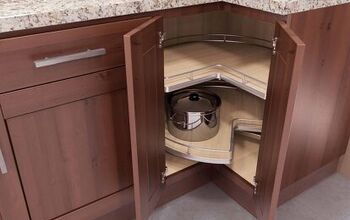

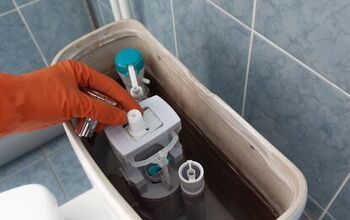
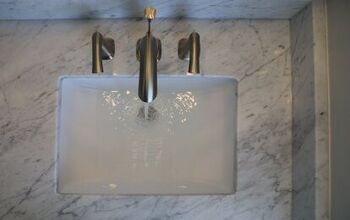


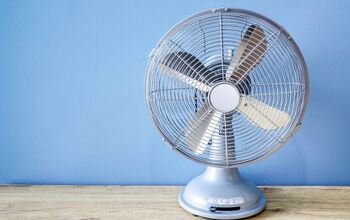

![Cost To Drill A Well [Pricing Per Foot & Cost By State]](https://cdn-fastly.upgradedhome.com/media/2023/07/31/9074980/cost-to-drill-a-well-pricing-per-foot-cost-by-state.jpg?size=350x220)


